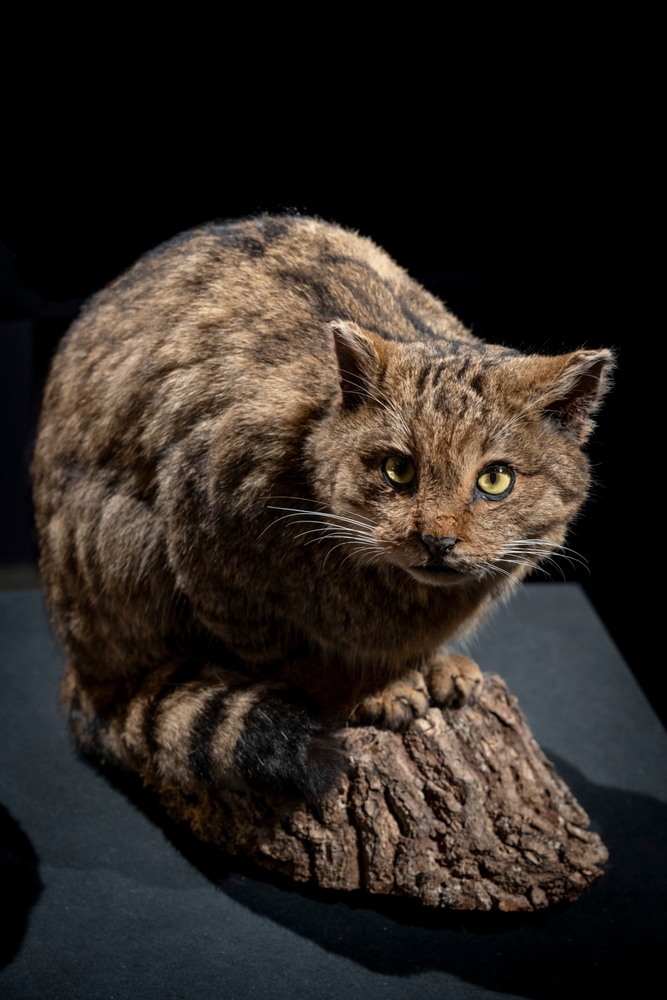
What are the Signs That Your Cat is in a Dying Stage?
January 25, 2024 9:23 pm Leave your thoughtsOur feline friends bring immense joy and love into our lives. From their playful antics to their comforting purrs, cats have become cherished members of our families. However, as cats age or battle with illness, they may enter their final stage of life. Recognizing the signs your cat is dying is crucial for providing the necessary care, comfort, and support during these challenging times. In this blog, we will explore the physical and behavioral indicators that suggest your cat may be nearing the end of their journey and memorialize your cat through taxidermy.
1. Decline in Appetite and Weight Loss
A significant decrease in appetite and noticeable weight loss are common indicators that your cat may be in the dying stage. Cats who are suffering from underlying health conditions, such as cancer or organ failure, may experience a loss of interest in food and become increasingly lethargic. Unexplained weight loss should not be ignored, as it is often an alarming sign that your cat’s body is deteriorating and their energy reserves are depleting.
2. Changes in Hydration
Dehydration can be another critical sign that your cat’s health is declining. A dying cat may exhibit symptoms such as dry gums, tacky skin, reduced urine output, or darker urine. When your cat loses interest in drinking water, it is important to try alternative methods to maintain hydration, such as providing wet food or using a syringe to administer small amounts of water orally. Consulting with a veterinarian is crucial to ensure your cat’s comfort and well-being.
3. Social Withdrawal and Lethargy
Cats are known for their independent nature, but when they are in their final stage, you may observe a significant change in their behavior. Social withdrawal, increased sleepiness, and a lack of interest in their surroundings are commonly seen among cats nearing the end of life. As your feline companion becomes weaker, they may seek solitude and spend more time in quiet and secluded areas. Offer comfort and companionship by providing soft bedding and gentle interaction while respecting their need for space.
4. Respiratory Issues and Difficulty Breathing
As a cat’s health declines, their respiratory system may struggle to function normally. Rapid or shallow breathing, coughing, wheezing, or labored breathing indicate that your beloved companion may be in distress. Respiratory issues can arise from various health conditions, including heart disease or lung infections. It is essential to consult with a veterinarian to explore treatment options and ensure your cat’s comfort.
5. Behavioral Changes and Altered Mobility
In addition to physical symptoms, signs that your cat is dying may include changes in behavior and mobility. They may become more irritable, restless, or show signs of confusion or disorientation. Your cat may also experience difficulties with coordination and exhibit weakness or paralysis in their legs. These changes can be distressing for both the cat and the caretakers, and it is vital to provide a safe and calm environment to alleviate stress.
6. Changes in Elimination Patterns
Changes in your cat’s toileting habits, such as frequent accidents, urinating or defecating outside the litter box, or difficulty passing urine or feces, may indicate that your cat is in its final stage. Medical conditions such as kidney failure or bowel obstruction can result in these changes. Providing your cat with a clean and easily accessible litter box can help them feel more comfortable during this time.
7. Poor Coat Condition and Loss of Muscle Tone
The condition of your cat’s fur and overall muscle tone can also provide insight into their health status. Signs your cat is dying and you may consider pet preservation may include a dull and unkempt coat. Their once-strong muscles can become visibly weaker, leading to a more emaciated appearance. Gently brushing their fur and providing comfortable bedding can offer some relief and maintain their dignity.
Contact Us Today
Recognizing the signs of your cat’s journey towards the end of life is a difficult and emotional experience. As you care for your beloved companion during this challenging time, exploring options that honor their memory and their unique presence in your life is essential.
At Animal Family Pet Preservation, we understand the deep bond we share with our furry family members. As a full-time, fully staffed taxidermy studio with expertise in the preservation and lifelike reconstruction of household pets, we strive to help you keep your cherished feline companion close to your heart forever. Contact us to learn more about memorialization options that can bring you comfort and solace in the coming days.
Categorised in: Pet Taxidermy
This post was written by mmaier

